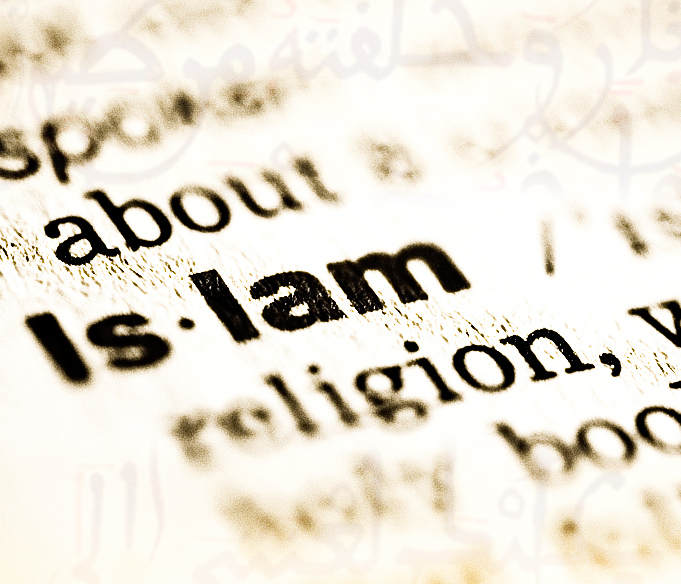Islam Today Biography
Source:- Google.com.pkThis name of Allah appears only once in the Qur’ān, in the second verse of the chapter entitled al-Ikhlās: “Allah, the Self-Subsisting.” [Sūrah al-Ikhlās: 2]
It appears in the Prophet’s Sunnah on a number of occasions, particularly in the aforementioned tradition pertaining to Allah’s greatest name, where Buraydah b. al-Husayb relates that the Prophet (peace be upon him) heard a man beseeching his Lord in the following words: "O Allah! I beseech You by affirming that You are Allah, there is no god besides You, the One, the Self-Subsisting, who begets not and is not begotten, and who no one else resembles in any way."
After the Prophet (peace be upon him) heard this, he said: "I swear by Him in whose hand is my soul, this man has beseeched Allah with His greatest name, which if anyone supplicates with it, that supplication will be accepted, and if anyone asks by it, it will be granted." [Sunan al-Tirmidhī (3475), Sunan Abī Dāwūd (1493) and Sunan Ibn Mājah (3857)]
The name al-Samad has many aspects to its meaning. It refers to one who is Lord, who possesses and disposes of all affairs, one whom people come to with their needs, but who at the same time is complete and self-sufficient, needing and depending upon no one else.
Ibn `Abbas, the eminent companion, defined the word samad as follows:
A chieftain whose chieftaincy and pre-eminence is absolute; a noble whose nobility is complete and impeccable; someone who is mighty, possessing absolute power, but clement in the utmost; someone who is wealthy without limit, able to compel at will; with full knowledge and wisdom. It is only Allah who has complete nobility and dominion, and this attribute – samad – belongs to Him alone. No one else is worthy of it.
The word samad is also defined as: “one whom everyone depends to fulfill their needs, but who needs no one and depends upon no one else.”
Allah says: “Shall I take for my protector any other than Allah, the Bringer into Existence of the heavens and the Earth? – He who gives sustenance and is never given sustenance?” [Sūrah al-An`ām: 14]
Allah provides everything for His creatures, but He is not dependent on them for anything: “I have only created humanity and the Jinn to worship Me. I seek no livelihood from them, nor do I ask that they should provide Me with sustenance.” [Sūrah al-Dhāriyāt: 56-57]
Allah did not create us to enrich Him or empower Him. He created us merely to worship Him. He is free from all deficiency and dependency. “Neither slumber nor sleep overtakes him.” [Sūrah al-Baqarah: 255]
“He begets not, nor is He begotten.” [Sūrah al-Ikhlās: 3]
Benefits of knowing this name of Allah
When we believe in our hearts that Allah is Self-Subsisting, needing no one but able to fulfill the needs of all, it becomes natural for us to turn to Him and pin our hopes in Him alone.
Ibn `Abbas relates:
I was with the Allah’s Messenger one day, when he said you me: “Young man, I will teach you something: Remember Allah and He will remember you. Keep Him in your heart and you will find Him with you. If you beg of someone, beg of Allah. If your rely on someone, rely on Allah.
Know that if the whole world united in order to provide you with some benefit, they could only benefit you with what Allah has already decreed for you. And know that if the whole world united in order to bring you harm, they could only harm you with what Allah had already decreed to befall you.
The pens have been lifted from the pages and the ink has dried.” [Sunan al-Tirmidhī (2516)]
We should turn to Allah with our hopes and fears, with our worldly concerns as well as our spiritual aspirations, in all matters great and small.
“And there are some among them who say: ‘Our Lord! Grant us good in this world and good in the hereafter, and save us from the chastisement of the Fire’.” [Sūrah al-Baqarah: 201]
Such faith should at the same time provide a vitality to our efforts and embolden us with confidence when we actively strive to reach our goals. It should make us more productive – as well as more patient – in realizing the things in life we are trying to achieve. It should make it easier for us to weather the difficulties that we face and surmount the obstacles that come our way. It should keep us from despair when we have done everything that we practically can do, but more is still required.
Our faith in Allah’s names and attributes should not be reduced to some rote recital of words, but must be something that actively informs and shapes our approach to life. When this is the case, we become empowered by our faith and more independent in our outlook.
We need to contemplate on the fact that Allah is Self-Subsisting. We are very different than other animals. Many of them have been given strength and sensory perception far exceeding our own. However, we have been blessed with the faculty of reason. We have been made accountable for our beliefs and our actions. One thing our minds can discern is the awareness of Allah. We can come to know our own weakness and discern our limitations. We recognize our own smallness and insignificance before the vastness of Allah’s creation, and realize the greatness of Allah. When we have this awareness of Allah, believe in Him, and recite His scriptures, we keep the remembrance of Allah alive. This is a great honor that Allah has blessed us with.
This is why Allah says: “In houses where Allah has permitted His name to be often invoked and remembered.” [Sūrah al-Nūr: 36]
It is indeed a great honor that Allah has permitted us to be aware of Him and to remember Him.
e have a tremendous power to influence our hearts as long as we believe we can and know how to approach it. It is only impossible for those who come with the attitude: “It is a waste of time, since I am not going to succeed.” As for those who do not know how to approach it, successful change can take a considerable amount of time.
What we refer to as “”involuntary” responses are the things we find it extremely difficult to change. However, with practice and persistence, we can gradually come to control the time, extent, and manner in which these responses occur. We have to first imagine that it is possible.
Start by watching a program or reading a book or article about the benefits of the thing you want to learn to love. Learn more about it and study its history. However, do so at a calm, gradual pace. Do not rush into things.
Imagine yourself at a future time when this thing has become an integral, habitual part of your life.
There are a lot of successful people who have forged habits out of what makes them successful, and who have learned to love the very things which are the keys to their prosperity. In this way, they manage to take control of every aspect of their lives, all the way down to the details of when they eat, drink, sleep and bathe.
Even though Allah says: “Know that Allah comes between a person and their heart.” [Sūrah al-Anfāl: 24] ; nevertheless ha still calls upon us to believe in Him and develop our faith.
Prophet Muhammad (peace be upon him) said, speaking about matters of the heart: “O Allah! This is how I divide up what I control, so do not rebuke me for what is outside of my control.”
However, this does not contradict where he says: “Love the one you love moderately, since they may become hateful to you one day.”
Though we are not able to instantly and directly control what the heart feels , our hearts are nevertheless connected to what we see with our eyes, hear with our ears, say with our tongues, touch with our hands, go with our feet, and think with our minds.
The love a person feels is, likewise, a habit. It is not a holiday celebrated with a Valentine card. Many young people today fail to appreciate that love is sacrifice, honesty, and selfless giving. They think it is about love songs, heart shapes, roses, love letters, sweet talk and transient pleasures.
It is quite common for love to leave your heat while you are halfway on its path, or when the beloved is attained. The Arabs of old had a saying: “When love is consummated, it is ruined.”
Does familiarity diminish love?
The Qur’an says: “And among His signs is this, that He created for you mates from among yourselves, that you may dwell in tranquility with them, and He has put love and mercy between your (hearts)” [Sūrah al-Rūm: 21]
Love will endure as long as both parties work hard on it and are willing weather the relationship’s inevitable storms with fortitude. When those storms pass, love, fidelity, and compassion are what remain.
Hearts are vibrant and will never stop feeling love as long as life remains.
Some hears feel inordinate love, burning with longing and madness, especially when the beloved is kept away.
Concealment of love is common in conservative traditional families. The open expression of love is regarded as a weakness. They are unwilling to say to their loved ones that they love them . Yet, it is that very love between the husband and wife and between the parents and children which shelters the family. . They need to cherish it and nurture it, for it is what brings contentment, closeness, and growth.
Love is the foundation of everything good, and its own foundation is the love of Allah. That is a sacred feeling, and preceded even our hope in Allah and our fear of Him. It is the pinnacle of faith.
Islam Today Islam Facts For Kids Pictures About Religion Wikipedia And History And Beliefs Worksheet On Women Today And Information Images Wallpapers

Islam Today Islam Facts For Kids Pictures About Religion Wikipedia And History And Beliefs Worksheet On Women Today And Information Images Wallpapers

Islam Today Islam Facts For Kids Pictures About Religion Wikipedia And History And Beliefs Worksheet On Women Today And Information Images Wallpapers

Islam Today Islam Facts For Kids Pictures About Religion Wikipedia And History And Beliefs Worksheet On Women Today And Information Images Wallpapers

Islam Today Islam Facts For Kids Pictures About Religion Wikipedia And History And Beliefs Worksheet On Women Today And Information Images Wallpapers

Islam Today Islam Facts For Kids Pictures About Religion Wikipedia And History And Beliefs Worksheet On Women Today And Information Images Wallpapers

Islam Today Islam Facts For Kids Pictures About Religion Wikipedia And History And Beliefs Worksheet On Women Today And Information Images Wallpapers

Islam Today Islam Facts For Kids Pictures About Religion Wikipedia And History And Beliefs Worksheet On Women Today And Information Images Wallpapers

Islam Today Islam Facts For Kids Pictures About Religion Wikipedia And History And Beliefs Worksheet On Women Today And Information Images Wallpapers

Islam Today Islam Facts For Kids Pictures About Religion Wikipedia And History And Beliefs Worksheet On Women Today And Information Images Wallpapers

Islam Today Islam Facts For Kids Pictures About Religion Wikipedia And History And Beliefs Worksheet On Women Today And Information Images Wallpapers

Islam Today Islam Facts For Kids Pictures About Religion Wikipedia And History And Beliefs Worksheet On Women Today And Information Images Wallpapers

Islam Today Islam Facts For Kids Pictures About Religion Wikipedia And History And Beliefs Worksheet On Women Today And Information Images Wallpapers

Islam Today Islam Facts For Kids Pictures About Religion Wikipedia And History And Beliefs Worksheet On Women Today And Information Images Wallpapers

Islam Today Islam Facts For Kids Pictures About Religion Wikipedia And History And Beliefs Worksheet On Women Today And Information Images Wallpapers

Islam Today Islam Facts For Kids Pictures About Religion Wikipedia And History And Beliefs Worksheet On Women Today And Information Images Wallpapers

No comments:
Post a Comment